World War III in the Making: Can Russia and China Stop a Strike on Iran?
Regime Change in Syria as a Preliminary Stage for an Attack on Iran
As the civil war in Syria intensifies, an intense diplomatic battle is on the way world wide between two blocks. On one hand are Israel, the United States and its European vassals, the UK, France and Germany and on the other hand are Russia and to a lesser extent China. The Western block is pushing for regime change in Syria on the ground of the humanitarian crisis provoked by al-Assad’s brutal repression of the opposition. But humanitarian concerns are, just like in the case of Libya, merely a smoke screen hiding a much darker agenda. There is no point in contesting that al-Assad is a dictator, but the civil war in Syria could have been avoided if pressure would have been put on Bashar al-Assad not to let his blood thirsty and border line lunatic brother Maher al-Assad be in charge of the brutal crackdown. The pressure on Bashar al-Assad to get rid off Maher should have been put on him months ago by the long term allies of the al-Assad’s regime which include Russia and Iran. The US empire is now seeking a UN resolution on Syria to reproduce the same scenario implemented in Libya. Russia and China will veto such a resolution, but it will not necessary prevent NATO to intervene militarily. The Obama administration’s rhetoric is now reflecting the possibility of an imminent intervention by the use of line such as “all options are on the table” which usually means that military plans- either direct or through various proxies- are at an advanced stage of preparation.
Egypt, Libya and Syria: Proxy “Revolutions” for the Benefit of Saudi Arabia’s Autocrats
A year ago, the Arab Spring brought down dictator Hosni Mubarak. A year later this jubilant mood has been replaced by frustration and a sense that little has been accomplished. The Egyptian army is still in charge, and the elections saw a victory of the conservative Muslim Brotherhood and the Salafis fundamentalists. Compared to last year, the crowd in Tahrir Square was anemic and the Muslim Brotherhood aligned itself with the military rulers by condemning a call for general strike. While tension seems to be growing between the US and the top brass of the Egyptian military, the army and the Muslim Brotherhood, despite a rocky start, are becoming increasingly comfortable bed fellows. As the influence of the United States is fading in Egypt, it is in the process of being replaced by the growing leverage of Saudi Arabia on Egyptian affairs through their allies of the Muslim Brotherhood.
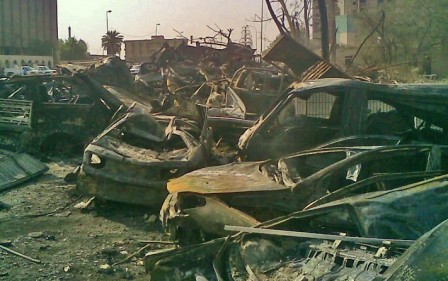 Even so both, the Libyan and Syrian revolutions were started by genuine activists inspired by Tunisians and Egyptians, the West quickly saw an opportunity to change the geopolitical landscape in the Middle-East to serve their interests for resources in Libya, and in the case of the unfolding events in Syria further isolate Iran. But once again, the United States geopolitical scheme is deeply flawed. What happened in Iraq could happened in Syria but this time around in reverse and with several disturbing twists. The fact that both Qaddafi and al-Assad respectively were and are dictators is not contestable, but what is questionable is the genuine concerns about the fate of Libyans and Syrians expressed by the United States and their European allies. In the case of Libya, the NATO intervention, backed by the UN, was not about helping the Arab revolution but about getting rid off an unpredictable ruler and, of course, oil. For Syria, it is not about helping the Arab revolution either but rather to fulfill three goals: isolate Iran, cut off Hezbollah supply route for funding and arms- coming from Iran through Syria- and diminish Russia’s influence in the region. In the three cases of Egypt, Libya and down the line Syria, the winner is not the Arab revolution, but instead the Kingdom of Saudi Arabia which can be considered as the most despotic regime in the region.
Even so both, the Libyan and Syrian revolutions were started by genuine activists inspired by Tunisians and Egyptians, the West quickly saw an opportunity to change the geopolitical landscape in the Middle-East to serve their interests for resources in Libya, and in the case of the unfolding events in Syria further isolate Iran. But once again, the United States geopolitical scheme is deeply flawed. What happened in Iraq could happened in Syria but this time around in reverse and with several disturbing twists. The fact that both Qaddafi and al-Assad respectively were and are dictators is not contestable, but what is questionable is the genuine concerns about the fate of Libyans and Syrians expressed by the United States and their European allies. In the case of Libya, the NATO intervention, backed by the UN, was not about helping the Arab revolution but about getting rid off an unpredictable ruler and, of course, oil. For Syria, it is not about helping the Arab revolution either but rather to fulfill three goals: isolate Iran, cut off Hezbollah supply route for funding and arms- coming from Iran through Syria- and diminish Russia’s influence in the region. In the three cases of Egypt, Libya and down the line Syria, the winner is not the Arab revolution, but instead the Kingdom of Saudi Arabia which can be considered as the most despotic regime in the region.
Geopolitical Blunders Which Could Trigger an all out War between Sunnis and Shiites
If Iraq was a gross miscalculation from the United States which in the end was beneficial to the Shiites and Iran, as noted above, the recent events in Egypt, Libya and now Syria will be a net gain for the Sunnis and Saudi Arabia. There is a sense of deja vu here in terms of America’s geopolitical limited acumen. In the 1980s, a similar strategy was implemented by the Reagan administration to use their then good friend Saddam Hussein to attack Iran. The carnage on both sides only made Iran stronger, but it also revived the conflict between Shiites and Sunnis. More recently the US invasion of Iraq had the same side effect of bringing to a boiling point the 600 year old sectarian conflict within Islam.
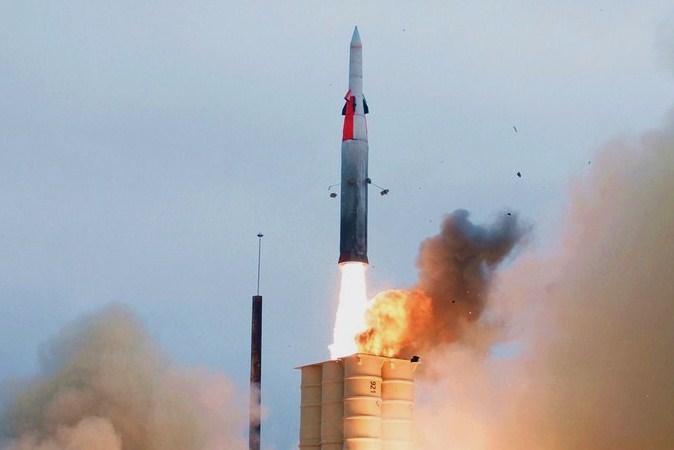 It is likely that both in Washington and Israel, some are considering the scenario of creating a proxy all out regional war between Sunnis and Shiites as the ultimate master plan. Cynically the benefits from the Israeli and American stand point might be viewed as “killing two birds with one stone”. However, there are so many different and conflicting interests in this geopolitical conundrum that the end game is likely to be a global disaster. At the moment this is what seems to be the most likely case scenario. Once al-Assad is gone, Israel would strike Iran under the pretense of preventing Teheran from completing its nuclear program. Iran will retaliate by blocking the straight of Hormuz and attacking oil tankers. Saudi Arabia, if they are naive enough to take the bait, would then attack Iran. Iraq would quickly become under the control of al-Sadr, and side with Iran. In Lebanon, once cut off from their vital Iranian supplies coming through Syria, Hezbollah would attack Israel which would then in return bomb and invade Lebanon.
It is likely that both in Washington and Israel, some are considering the scenario of creating a proxy all out regional war between Sunnis and Shiites as the ultimate master plan. Cynically the benefits from the Israeli and American stand point might be viewed as “killing two birds with one stone”. However, there are so many different and conflicting interests in this geopolitical conundrum that the end game is likely to be a global disaster. At the moment this is what seems to be the most likely case scenario. Once al-Assad is gone, Israel would strike Iran under the pretense of preventing Teheran from completing its nuclear program. Iran will retaliate by blocking the straight of Hormuz and attacking oil tankers. Saudi Arabia, if they are naive enough to take the bait, would then attack Iran. Iraq would quickly become under the control of al-Sadr, and side with Iran. In Lebanon, once cut off from their vital Iranian supplies coming through Syria, Hezbollah would attack Israel which would then in return bomb and invade Lebanon.
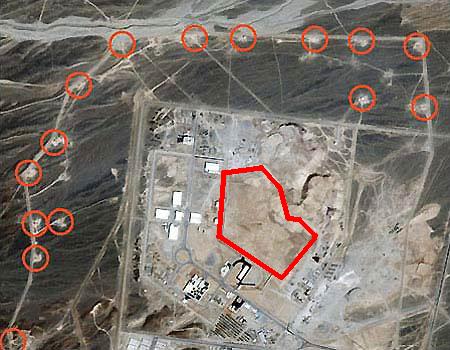 This cataclysmic chain of events would make oil prices go easily at $200.00 a barrels within weeks by interrupting not only production but transit. This, in return, would plunge an already shaky world economy (especially Europe ) into a depression worse than 1929. Europe has become the vassal of America both politically and economically, and neither Germany, the UK or even France will resist the will of their master in Washington DC. This leave only three big players to stop the madness of a war against Iran: Russia and China, in both cases militarily and economically and Central and South America, politically and economically in terms of resources. Many questions remain: will Russia and China combine their effort and use their strength and substantial military assets to stop a war against Iran or will they be weak just like in the cases of Iraq and Afghanistan? Will China, Germany, Japan, and Brazil-the biggest holders in US Treasury Bonds- will use the threat of a massive sale of their four trillions dollars in holding as the ultimate leverage against the United States? Will a major economic depression trigger real revolutions across the globe including in Western Europe and the United States? Indeed, “all options are on the table” for the US empire, but it is hard to foresee anything else than World War III if the ultimate folly of attacking Iran is not stopped by Russia and China.
This cataclysmic chain of events would make oil prices go easily at $200.00 a barrels within weeks by interrupting not only production but transit. This, in return, would plunge an already shaky world economy (especially Europe ) into a depression worse than 1929. Europe has become the vassal of America both politically and economically, and neither Germany, the UK or even France will resist the will of their master in Washington DC. This leave only three big players to stop the madness of a war against Iran: Russia and China, in both cases militarily and economically and Central and South America, politically and economically in terms of resources. Many questions remain: will Russia and China combine their effort and use their strength and substantial military assets to stop a war against Iran or will they be weak just like in the cases of Iraq and Afghanistan? Will China, Germany, Japan, and Brazil-the biggest holders in US Treasury Bonds- will use the threat of a massive sale of their four trillions dollars in holding as the ultimate leverage against the United States? Will a major economic depression trigger real revolutions across the globe including in Western Europe and the United States? Indeed, “all options are on the table” for the US empire, but it is hard to foresee anything else than World War III if the ultimate folly of attacking Iran is not stopped by Russia and China.
Related Articles


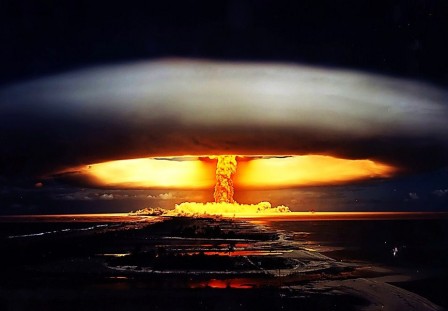
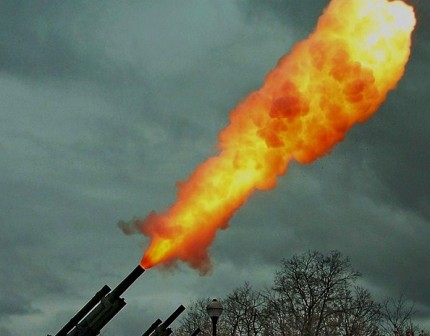












You must be logged in to post a comment Login